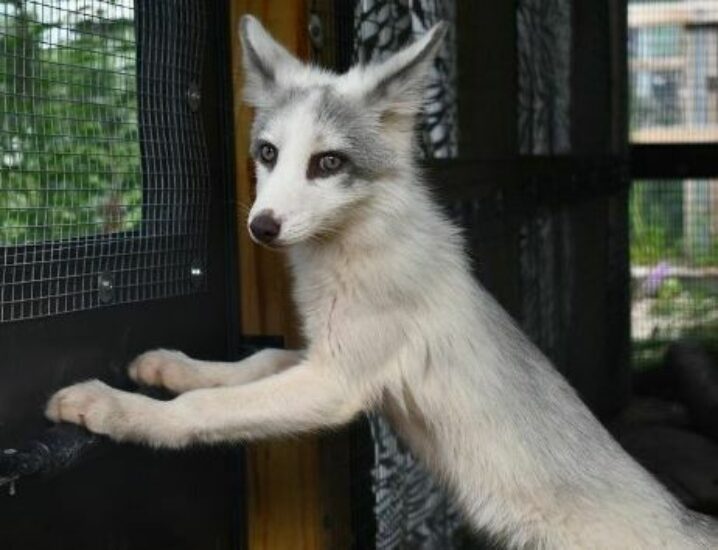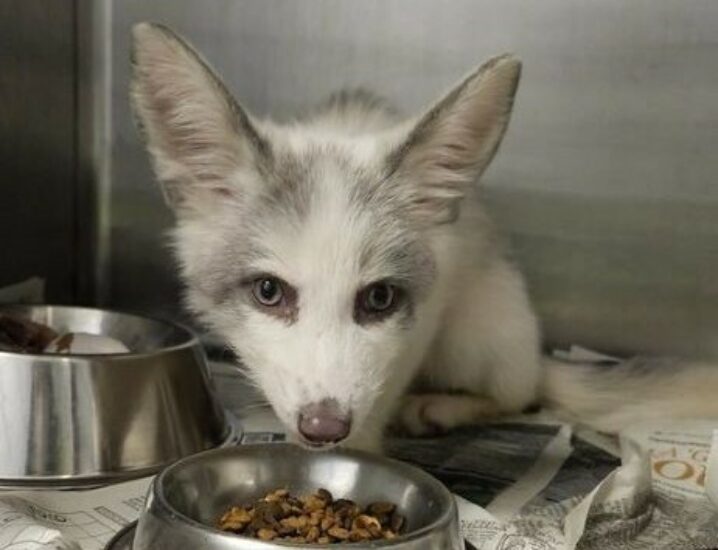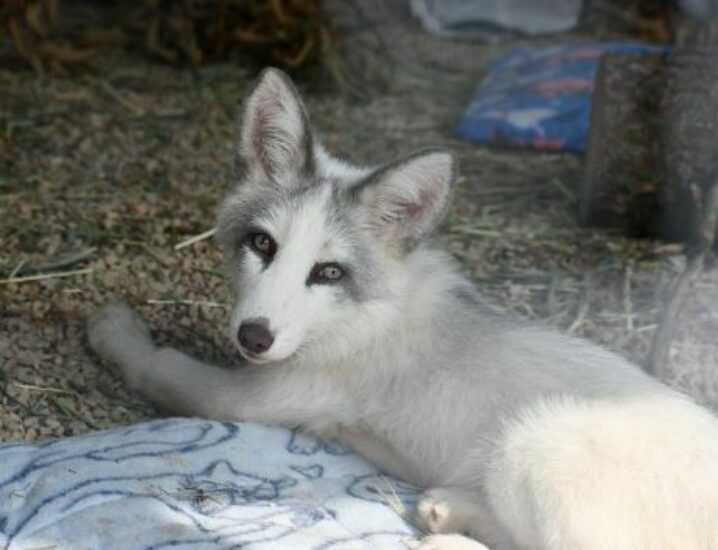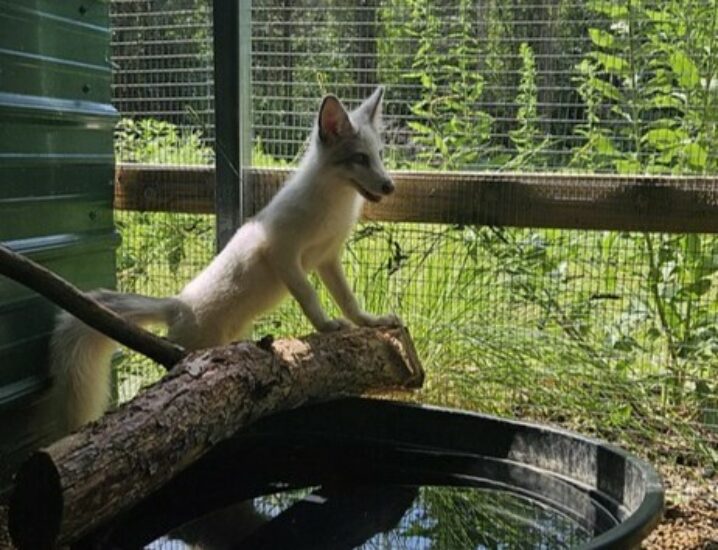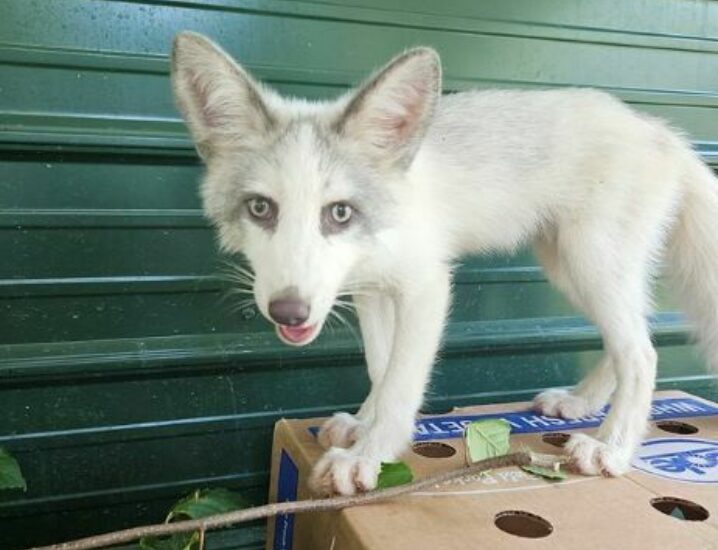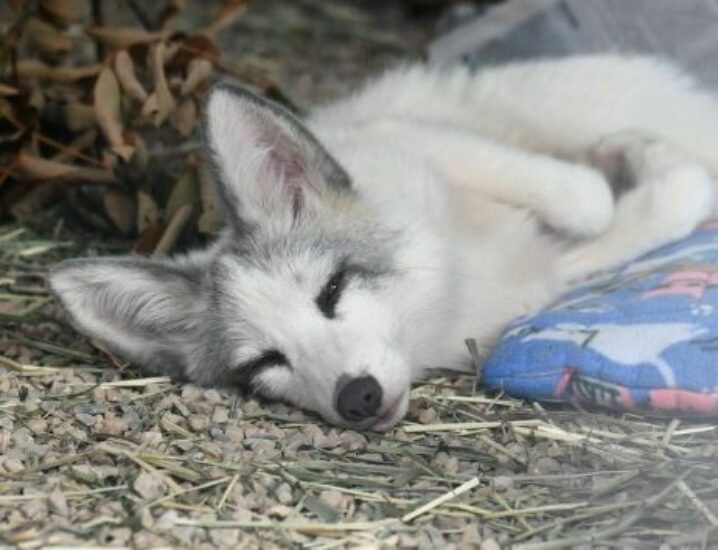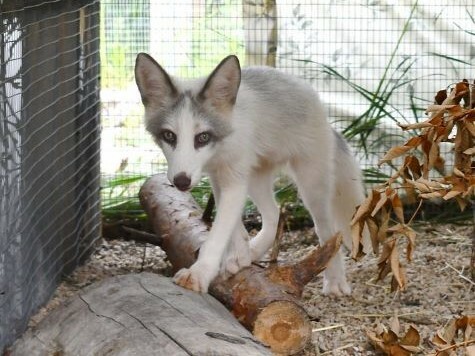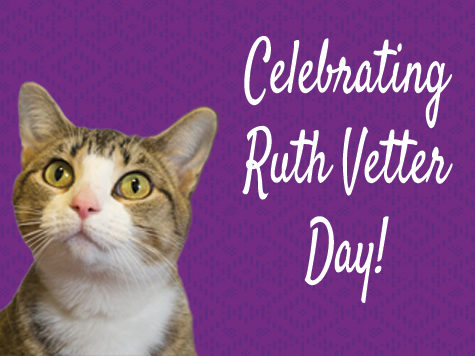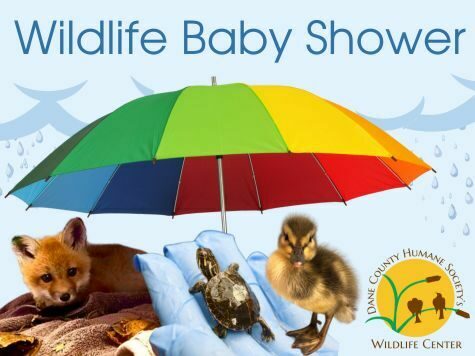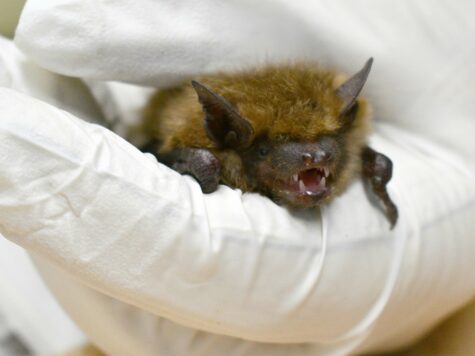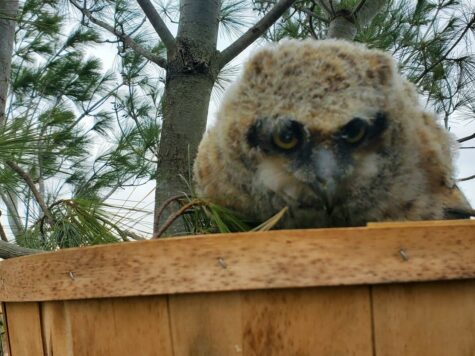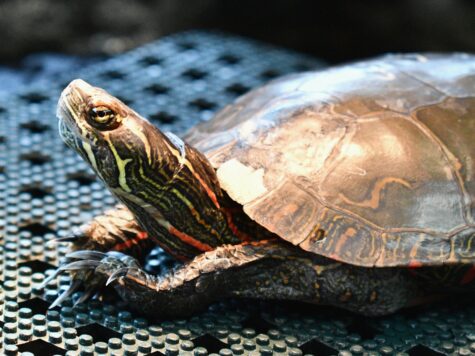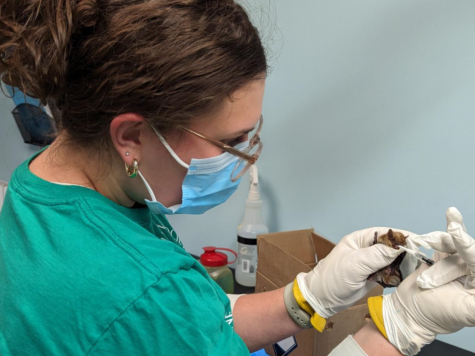Updated January 11, 2024:
Domestic Fox #23-1090, named Teddy, was transferred from Dane County Humane Society (DCHS) to the San Diego Zoo Wildlife Alliance (SDZWA) in hopes that he will become one of their next, newest educational ambassadors. He was the perfect passenger during the drive from Madison, WI to the Milwaukee Mitchell International Airport, at least from the perspective of DCHS Associate Director of Development Paul Vornholt, who joined for the ride. Teddy then boarded a plane with Delta Cargo after he was booked in. He had to endure a long journey across the United States in a specialized crate that was lent to DCHS by Henry Vilas Zoo just for this trip. We are thankful to them for their assistance. After one necessary layover in Atlanta, GA and 12-hours of travel time, Teddy made it safe and sound to San Diego, CA
Nicki Boyd, Curator of Mammals, Ambassadors and Applied Behavior at SDZWA, shared an update: "Teddy is doing great as he settles into the zoo and finishes up his required quarantine period. He will live behind-the-scenes in one of their four ambassador areas called Africa Rock Encounters. The team is working on their relationship, and they have already begun training. This team has a large area that is mostly used for school programs and behind-the-scenes tours, so he will not be in a public habitat, but will educate lots of guests through interpretive programs when he is comfortable."
SDZWA hopes to share videos of Teddy as he progresses in his training, but it might be some time before he is ready for the spotlight. They are so excited to have him as their newest ambassador and look forward to educating guests on foxes, their natural behavior, and why wildlife does not make good pets.
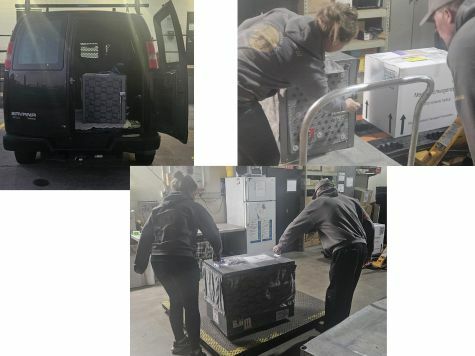
Have you ever wondered how a fox might get comfortable with being in a small crate for such a long time? Well, as you might imagine, it took consistent exposure and a lot of patience with training. First, the crate was placed in Teddy’s enclosure for about a week before transport so that he would use it normally and choose to sleep in it at night. Staff also came up with creative ways to make it fun for Teddy, giving him opportunities to use the crate in different settings. This always included incentives – a combination of treats, head pats, and happy voices to get him to hop in and use it. As expected, he was rewarded for doing it.
Staff would progressively close the crate for a few minutes at a time, then longer periods, and they provided positive reinforcement with good behavior. Wildlife Veterinary Technician Erin Lemley, Licensed Wildlife Rehabilitator Kaylie Gilliland, and Werndli Apprentice Ashton Whitaker even took Teddy on trips around the block in the DCHS van to get him used to being in a vehicle. This is an inside look into his case notes to describe how it went:
Transport Training Timeline at DCHS:
December 11th – Erin and Ashton practiced the training phrase "go to bed" to get Teddy to go into his crate. Teddy went into the crate willingly and ate treats while he was inside. After the door was closed, they practiced lifting the crate up, walking around, and setting it down. He tolerated this process very well.
December 12th – Erin and Ashton used the words "go to bed" to get Teddy to go into his crate again, and then they gave him a peanut butter Kong and treats hidden in his straw bedding. Erin then noted, “We took [Teddy] for a practice car ride today, with Ashton feeding occasional treats through the bars. Drive time was about 7 minutes long. Teddy was relaxed in the car and willing to eat treats and chew on a Kong. Did not start getting restless in the crate until after we were back in his cage and cleaning it out.”
December 13th – Kaylie and Ashton note that Teddy was “bright, alert, and responsive, and very amenable to being in the crate. He entered it before even being given a treat. He sat and stayed in there for most of the time (we took a video) and tolerated being kenneled during his weighing very well.” Took for another car ride during which he was quiet the whole time and did not get restless in his crate.
When Teddy finally had his adventure to San Diego, SDZWA Wildlife Care Supervisor Cari Inserra said Teddy “arrived seemingly unscathed. He ate, drank, and explored, all within a few minutes. Hospital keepers report he is doing well: outgoing and busy. We are beyond excited to start working with him in his future role!”
Thank you again to everyone who helped care for this fox at DCHS, or who sent in a donation to support his stay so that our team could get him to a place where he can thrive.
Jackie Sandberg is the Wildlife Program Manager at DCHS's Wildlife Center.
Read more about Teddy's story below.
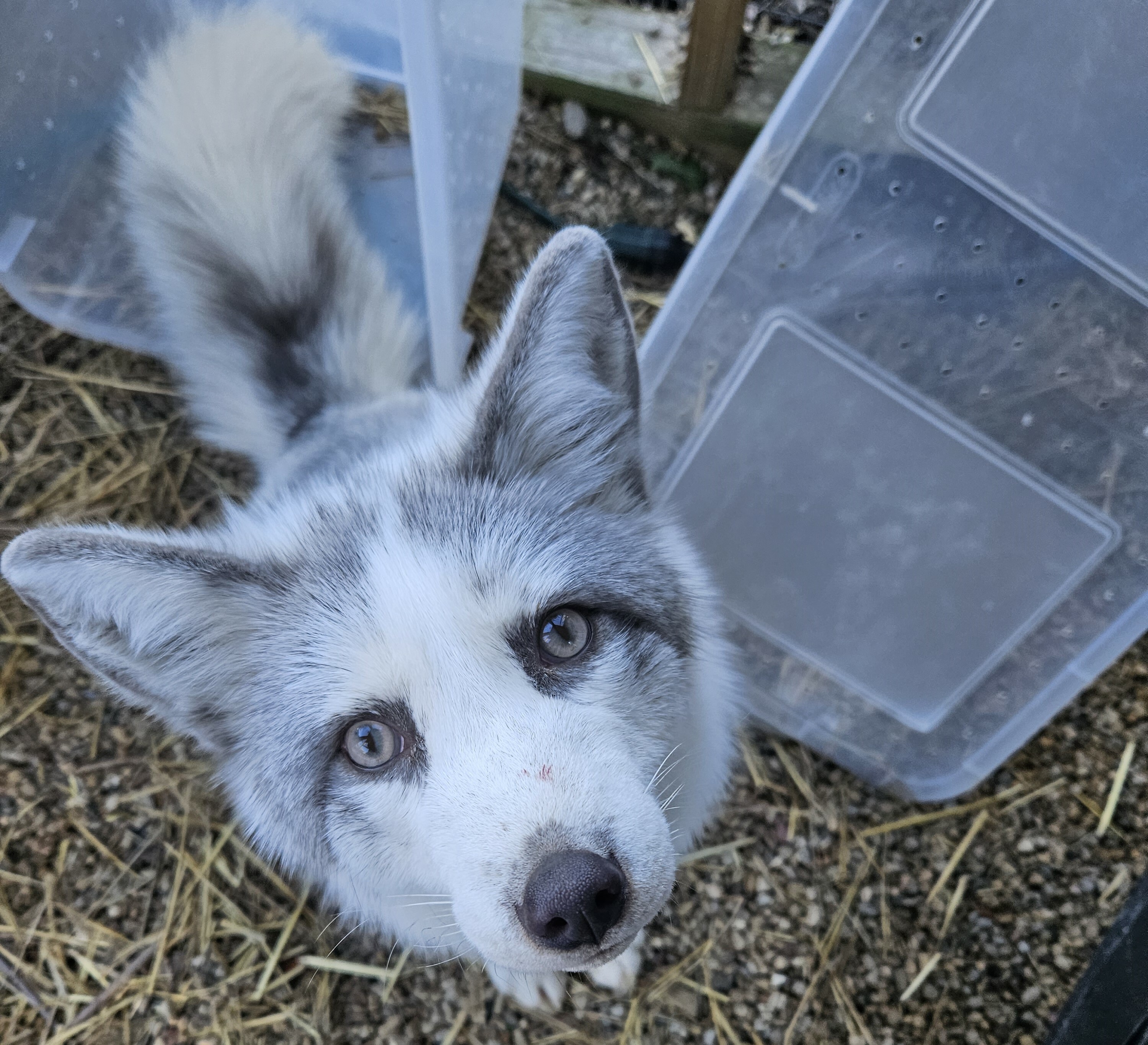
Oh, Fox! He's Not Wild
BY KAYLIE GILLILAND
Because of our generous community, DCHS’s Wildlife Center has saved thousands of wild animals over the years – and even some not quite wild.
On an otherwise typical Wednesday, a reception volunteer at Dane County Humane Society’s (DCHS’s) Wildlife Center took a call about an orphaned fox kit. Nothing seemed out of the ordinary until the finder sent a photo. Staff’s jaws all dropped with surprise and curiosity – it was indeed a red fox kit, but its silver and white color pattern is a rare sight.
The finder explained she was driving down a road in Verona, WI, when she happened upon a silver and white fox kit. When she got out of the car, the fox kit immediately began begging her for food and following her around. She left the fox some food that she had in her car and departed, but when she returned to the area a short time later to make sure this fox had gone on its way, she found it was still alone. She then brought the fox kit home and kept it in her care until she found a facility that could take it.
DCHS’s Wildlife Center staff scheduled an admission appointment right away. Once the fox kit arrived, our licensed wildlife rehabilitators conducted a standard physical exam. Other than having an abundance of stickseeds stuck in his fur, the fox kit was in great condition. Our staff gave him a bath to remove the stickseeds and set him up in an indoor enclosure until we could determine an appropriate plan of action.
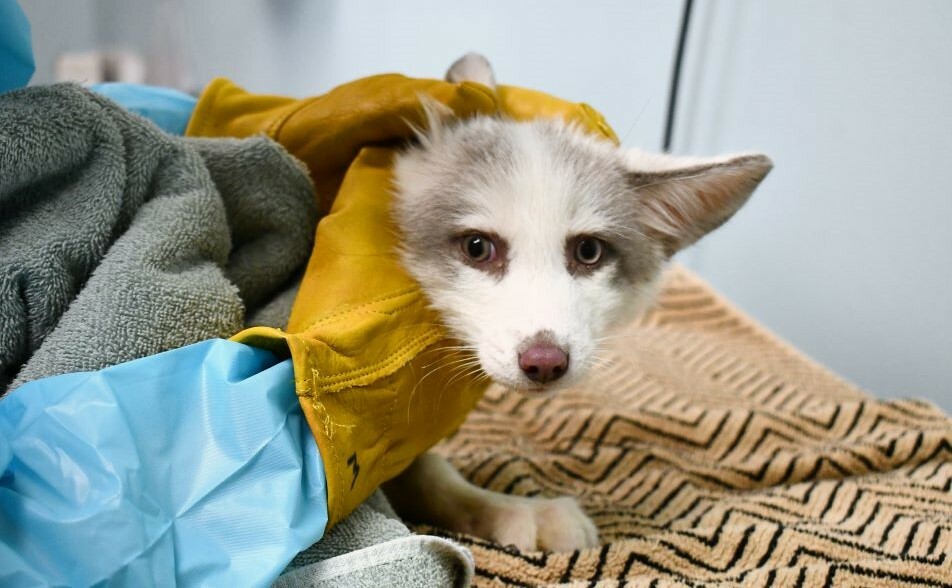
We first reached out to the UW Urban Canid Project and the Department of Natural Resources to see if there was a permit or any other information about the origin of the fox. Whether this little friend came from a fur farm or was kept as a pet, one thing our licensed wildlife rehabilitators could tell for sure was the fox wasn’t wild.
Wild foxes are typically aggressive towards people, which is exactly what wildlife rehabilitators want to see. When releasing wild patients, it is imperative that each animal realizes the threat of other creatures, especially humans, as this helps them stay as safe as possible when out in the world on their own. This is why it is so important to “keep wildlife wild.”
On the other hand, domesticated animals have been adapted to an environment where people are not seen as a threat. When adapted at such a young age, this nature can be hard to change and completely alters the future for the animal as they can no longer survive in the wild on their own and placement options are limited. The fox kit who arrived at DCHS’s Wildlife Center soon began to display behaviors similar to that of an animal who had been domesticated. The fox kit was initially a bit timid and skittish, but he was never aggressive and very quickly showed his playful side.
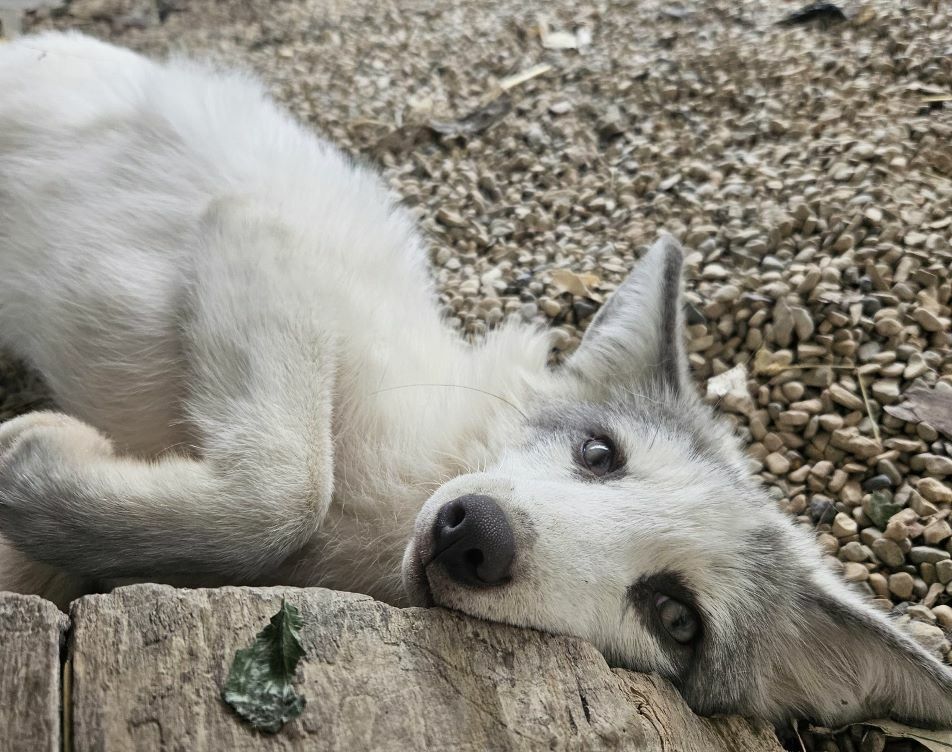
When no further information could be gathered about the fox, our Wildlife Center staff gathered to discuss a plan. After much discussion and time spent with this fox, it was decided that he would make an excellent educational ambassador. Our staff hopped back on their computers to reach out to zoos and organizations in the hopes of finding this sweet boy an appropriate home. Although this fox kit had a similar personality to that of a household dog, even domestic foxes make poor pets – they have very specific needs that are unlikely to be met in a normal home, so it was important to find him placement at a facility with licensed experts who understand his species’ particular needs.
Until that placement could be found, this new fox friend became “Teddy,” and he won the hearts of everyone at DCHS’s Wildlife Center. Our staff set up an outdoor enclosure for Teddy and provide him with daily care and socialization in order to better acclimate him to human presence and interaction.
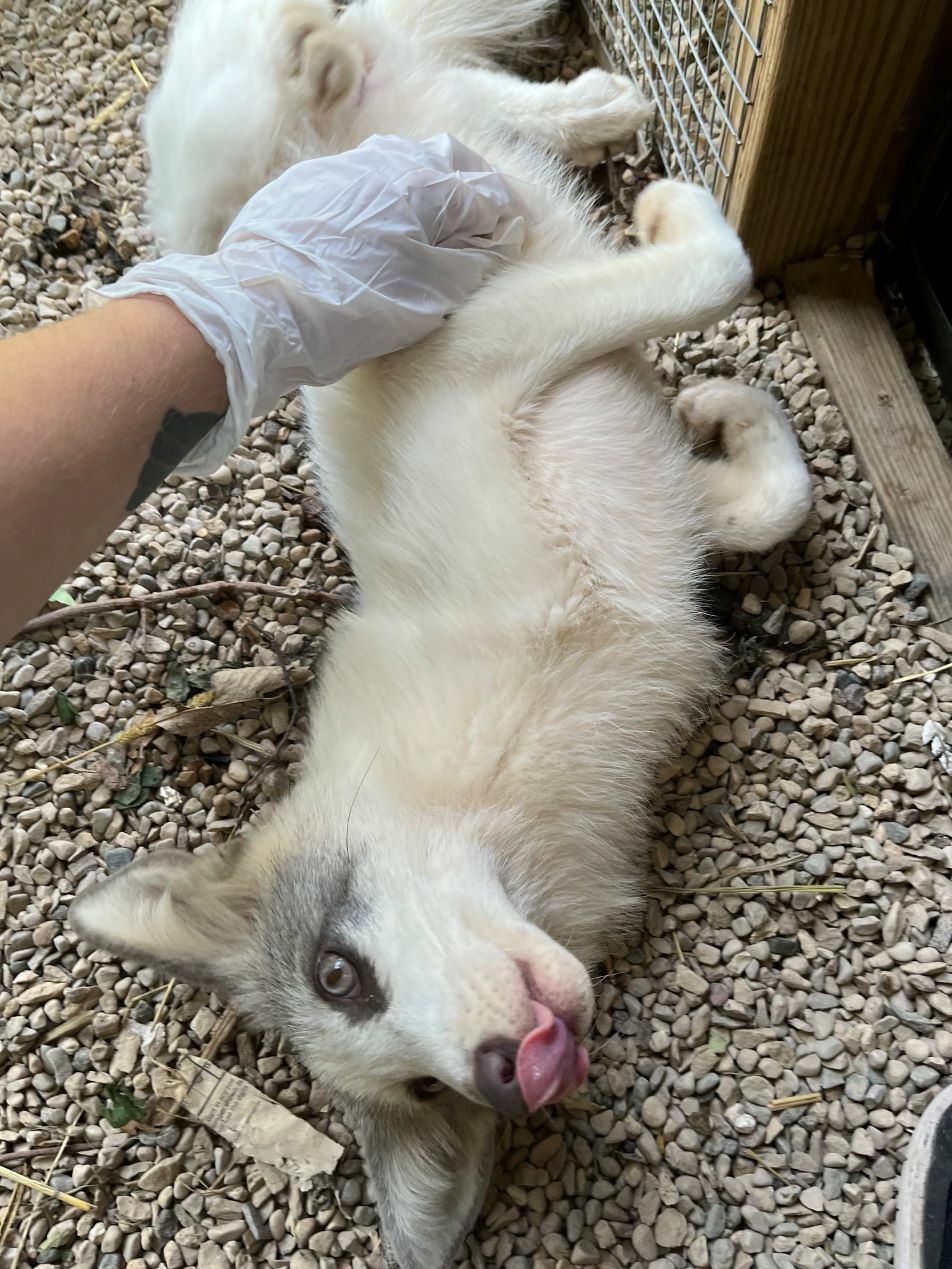
For DCHS’s Wildlife Center, socializing animals is completely outside of standard protocol. Our staff follow strict guidelines to ensure our wild patients do not become used to human presence and maintain a healthy fear of people that will protect them when they return to their wild homes. However, Teddy is a special case – socialization is needed to prepare him for a life as an educational animal. Aside from hanging with his human friends, Teddy loves playing with toys, running on his cat wheel, and lounging on some cozy blankets.
Eventually, our Wildlife Center staff heard from the San Diego Zoo, as they believe Teddy would make an excellent addition to their education department, and paperwork is under way. Although Teddy has been a wonderful friend to have at DCHS’s Wildlife Center, our team can’t wait for him to embark on his next adventure.
Kaylie Gilliland is a Licensed Wildlife Rehabilitator
It's because of supporters like you that our Wildlife Center can provide specialized care and treatment for so many wild (or even some not quite wild) animals. Give today so we can continue making a difference for Wisconsin wildlife!
